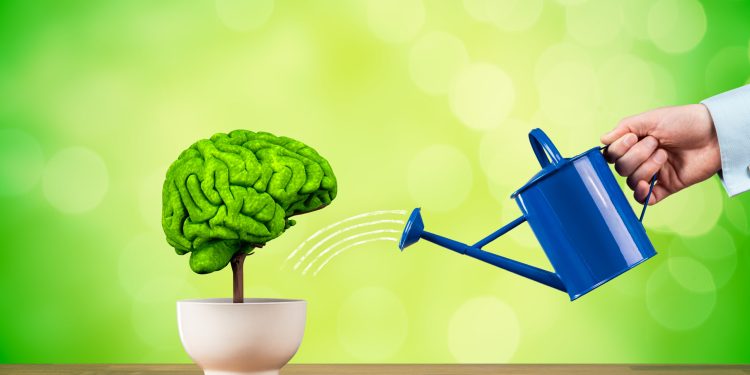Introduction:
In a groundbreaking study, researchers have discovered a powerful link between proper hydration and improved brain function and mood.
With our brains serving as the control center for all our bodily functions and emotional well-being, it comes as no surprise that staying adequately hydrated plays a vital role in optimizing cognitive abilities and maintaining a positive outlook on life.
The Significance of Hydration for Brain Health
The human brain is composed of approximately 75% water, making hydration crucial for its optimal functioning. When dehydration sets in, even to a minor degree, the brain is quick to feel the effects.
Studies have shown that as little as 1-2% dehydration can lead to decreased cognitive performance, impaired concentration, and reduced mental clarity. Furthermore, dehydration has been linked to increased fatigue, headaches, and mood disturbances.
- Brain Composition: The brain is composed of about 75% water. This high water content is essential for the brain’s structural integrity and overall functioning. When the body becomes dehydrated, water reserves are depleted, leading to a decrease in the brain’s water content. Even a slight decrease in hydration levels can have a noticeable impact on brain function.
- Cognitive Performance: The brain is responsible for processing information, making decisions, and carrying out various cognitive tasks. Adequate hydration is crucial for optimal cognitive performance. When the brain lacks sufficient water, cognitive abilities such as attention, concentration, and memory can be negatively affected. Studies have shown that dehydration can impair cognitive function, leading to decreased mental acuity, slower reaction times, and difficulties in problem-solving.
- Energy Production: The brain requires a significant amount of energy to perform its functions effectively. Water plays a vital role in energy production within brain cells. When well-hydrated, the brain’s cells can efficiently generate the energy needed for mental processes. On the other hand, dehydration can hinder energy production, leading to feelings of fatigue, sluggishness, and decreased mental alertness.
- Mood Regulation: Hydration has a direct impact on mood regulation. The brain relies on various chemical messengers, known as neurotransmitters, to maintain a balanced mood. Water helps facilitate the production and transport of these neurotransmitters. When dehydrated, the brain’s neurotransmitter function can be disrupted, potentially leading to mood imbalances, irritability, and an increased risk of anxiety and depression.
- Brain Protection: Proper hydration also contributes to the brain’s overall protection and well-being. Water acts as a cushioning agent, surrounding the brain and spinal cord with cerebrospinal fluid, which acts as a shock absorber. This protective fluid helps safeguard the brain against impact and injury. Additionally, staying well-hydrated supports the brain’s ability to flush out toxins and waste products, promoting a healthier brain environment.
- Blood Flow and Oxygenation: Optimal hydration supports proper blood flow and oxygenation to the brain. Water helps ensure adequate blood volume, which in turn supports the delivery of oxygen and essential nutrients to brain cells. Improved blood flow enhances the brain’s ability to perform at its best, allowing for clearer thinking, sharper focus, and enhanced cognitive abilities.
How Water Impacts Brain Function:
Water plays a multifaceted role in supporting optimal brain function. Here are some key aspects of how hydration impacts the brain:
- Oxygen and Nutrient Delivery: The brain requires a constant supply of oxygen and nutrients to function optimally. Water plays a crucial role in facilitating the transport of these essential substances to brain cells. When adequately hydrated, blood flow to the brain improves, ensuring a steady delivery of oxygen and nutrients. This enhanced circulation promotes the brain’s ability to perform tasks efficiently, think clearly, and maintain focus.
- Waste Removal: In addition to delivering oxygen and nutrients, water aids in the removal of waste products from the brain. As brain cells perform their functions, they produce metabolic waste that needs to be eliminated. Sufficient hydration supports the brain’s waste removal processes, helping to clear out toxins and maintain a clean and healthy environment for optimal brain function. By staying hydrated, individuals can support the brain’s natural detoxification mechanisms and potentially reduce the risk of cognitive decline.
- Electrolyte Balance: Electrolytes, such as sodium, potassium, and magnesium, play a vital role in the transmission of electrical signals between brain cells. These signals are essential for various cognitive processes, including learning, memory, and information processing. Water intake helps maintain the electrolyte balance in the brain, ensuring proper signal transmission. Imbalances caused by dehydration can disrupt these electrical signals, impairing cognitive abilities and affecting mood.
- Temperature Regulation: The brain is highly sensitive to changes in body temperature. When the body becomes dehydrated, it becomes more challenging to regulate body temperature, leading to an increase in core temperature. Elevated temperatures can negatively impact brain function, resulting in decreased cognitive performance and potential mood disturbances. Adequate hydration helps regulate body temperature, promoting optimal brain function and preventing overheating.
- Neurotransmitter Production: Neurotransmitters are chemical messengers in the brain that regulate mood, cognition, and overall mental well-being. The production and release of neurotransmitters are influenced by hydration levels. Insufficient water intake can disrupt the balance of neurotransmitters, potentially leading to mood imbalances and affecting cognitive processes. By maintaining proper hydration, individuals can support the production and functioning of neurotransmitters, promoting a positive mood and optimal brain function.
How Water Impacts Brain Function
Water plays a fundamental role in several vital processes within the brain. It helps facilitate the transport of oxygen and essential nutrients to brain cells, ensuring their proper functioning.
Additionally, adequate hydration promotes the removal of toxins and waste products from the brain, contributing to its overall health and longevity. By drinking enough water, individuals can enhance their brain’s efficiency and support optimal cognitive processes.
The Relationship Between Water and Mood
While the connection between water and brain function is well-established, recent research has shed light on the impact of hydration on mood regulation.
Dehydration has been associated with negative emotional states, including increased irritability, anxiety, and depression.
On the other hand, maintaining proper hydration levels has shown to enhance overall emotional well-being and promote a more positive mood.
Cognitive Benefits of Staying Hydrated
The benefits of staying hydrated extend beyond mood regulation. Studies have demonstrated that adequate water intake can significantly improve cognitive performance. Hydration plays a pivotal role in enhancing concentration, focus, and mental clarity. Moreover, research suggests that well-hydrated individuals exhibit improved memory and information retention capabilities, allowing them to absorb and recall information more effectively. Additionally, staying hydrated has been linked to enhanced creativity and problem-solving abilities.
Strategies for Maintaining Adequate Hydration
Ensuring sufficient water intake throughout the day is essential for reaping the benefits it offers to brain function and mood.
To stay hydrated, individuals can calculate their daily water needs based on factors such as body weight, activity level, and climate. Keeping a water bottle handy and setting reminders to drink water regularly can help establish a hydration routine.
Exploring flavored water options, consuming water-rich foods, and infusing water with fruits or herbs can make hydration more enjoyable and enticing.
Other Factors Affecting Brain Function and Mood
While water intake plays a crucial role in brain health, it is essential to acknowledge the influence of other factors as well.
A well-rounded approach to brain function and mood enhancement includes maintaining a balanced diet rich in essential nutrients, ensuring quality sleep, and managing stress effectively.
These lifestyle factors work synergistically with hydration to promote optimal brain health and emotional well-being.

































































